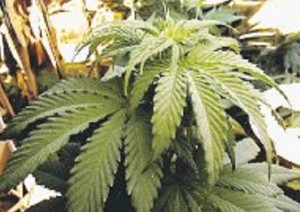While more and more countries are moving to legalize medicinal or recreational marijuana, or at least decriminalize its personal use, the Dangerous Drugs Board said it will oppose any proposal in the Philippines to follow suit.
DDB Undersecretary Edgar Galvante said there was no reason to support the legal, medical use of marijuana in the Philippines as the board, as well as the Department of Health, was not convinced of its benefits.
Two American states—Washington and Colorado—recently voted in a referendum to legalize marijuana for recreational purposes. California leads 18 other states that have already approved the regulated use of marijuana for medicinal purposes. In many other countries in Europe and South America the trend has also been to ‘decriminalized’ the use of small personal amounts of the herbal drug.
But according to Galvante, “the DDB and the DOH would oppose if ever there was a proposal to legalize marijuana. The DOH does not recognize the therapeutic value of marijuana,” he added.
Galvante made the statement at a hearing of the House Committee on Dangerous Drugs, where Parañaque Rep. Roilo Golez wondered aloud whether antidrug officials were likely to emulate the emerging trend in the US of allowing the legal use of the hallucinogenic substance.
Still illegal
Golez noted that while marijuana is currently illegal in the Philippines, some lawmakers may later on seek to legalize it.
But Galvante argued that while there might be studies claiming that marijuana has medical uses, there are still other remedies—legal ones—that could bring about the same relief and effects as marijuana.
Advocates of medicinal marijuana, however, claim the weed is safer and has less side effects than pharmaceuticals. In Canada, where medicinal marijuana is legal, the herb is reportedly being prescribed for relief of pain or persistent muscle spasms related to multiple sclerosis, spinal cord injury, anorexia, cancer, HIV/AIDS infection, arthritis, and seizures from epilepsy, among others. It is also allowed for compassionate end-of-life care.
But with marijuana remaining illegal in the Philippines, drug enforcement authorities say they will continue going after those who cultivate, sell and use the weed.
